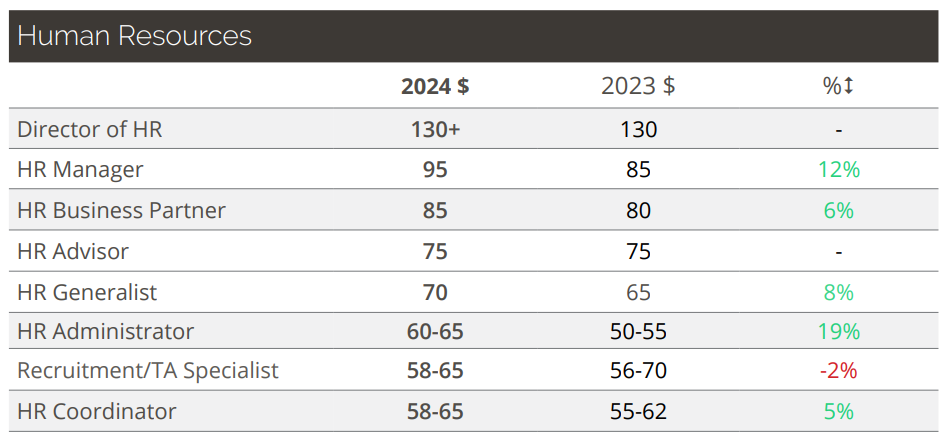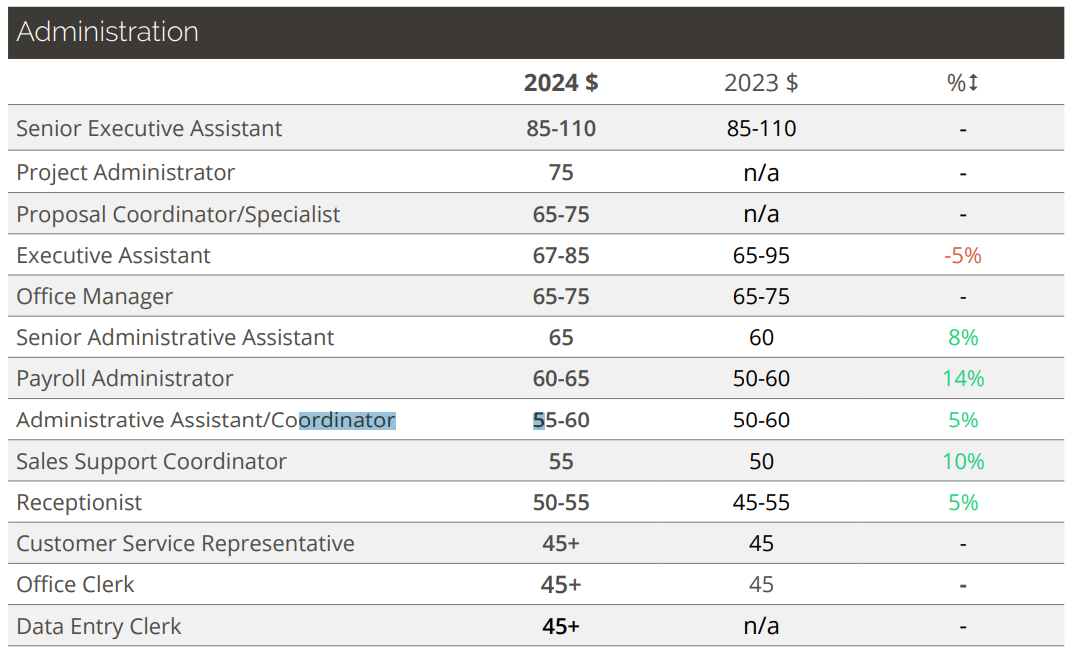
'The amount of talent currently on the market has contributed to stabilization of salaries across the board'

Salaries within the human resource profession in the Greater Vancouver Area have seen little positive change, with some workers even seeing their income go down compared to the previous year, according to a recent report.
Among HR professionals, administrators (+19%) and managers (+12%) have seen the biggest gains in pay from 2023 to 2024, reports Impact Recruitment.
Meanwhile, the increases are smaller for those holding the generalist (+8%), business partner (+6%) and coordinator (+5%) titles.
And recruiters and talent acquisition specialists experienced a 2% reduction in their pay.
There was no change in the salaries of HR directors and advisors.
This is a result of the suboptimal quality of jobseekers, according to Impact Recruitment.

Source: Impact Recruitment
“Despite a large number of job seekers in the admin and HR sectors, the volume of applications and overall quality of candidates stalls recruitment efforts and creates ongoing challenges for employers,” they say.
“Additionally, the amount of talent currently on the market has contributed to stabilization of salaries across the board: senior roles have seen little change in compensation, while junior-level positions such as receptionist and administrative assistant have experienced modest increases of 5-10%, as companies recognize the need for, and benefits of, offering competitive entry-level compensation.”

Source: Impact Recruitment
The labour shortage in Canada is over, and it will impact the wage growth rates of Canadian workers in the future, according to a previous report from the Bank of Montreal (BMO).
While there has not been a huge increase in pay across the board for HR and admin professionals, employers are focusing on improving their offerings, says Impact Recruitment.
“Companies are increasingly focusing on non-monetary benefits to attract and retain top talent. Flexible work arrangements, comprehensive benefits, generous PTO, parental leave top-ups and opportunities for professional development are becoming standard practices, particularly as employers strive to create a more supportive workplace culture and deliver a better employee experience.”
But as the laboour market continues to evolve, the firm is encouraging both candidates and employers to remain flexible.
“Candidates are advised to remain open to career paths they may not have considered previously, while employers are urged to maintain transparency, communicate effectively and set realistic expectations in order to streamline the hiring process.”
Canadians believe that their employer should provide them with coverage for different forms of treatment to address their physical pains, according to a previous Ipsos report.